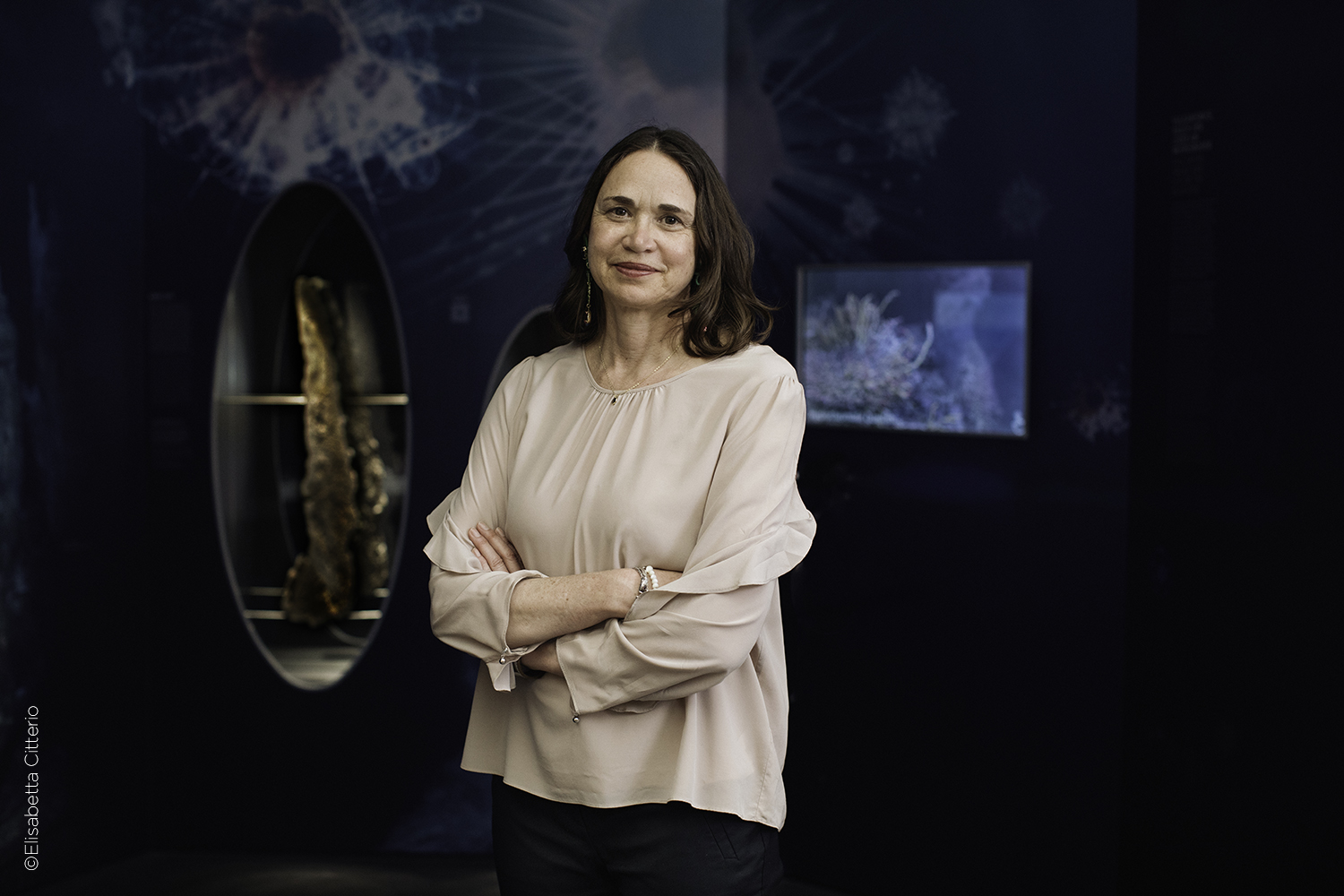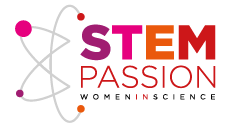ULRIKE KASTRUP

Photo: Dr. Ulrike Kastrup, Director of focusTerra Zurich, ETH, Zurich, 2025.
FOLLOW WHAT SETS YOUR SOUL ON FIRE.
Ulrike Kastrup is the Director of focusTerra, the Earth & Science Discovery Center of ETH Zurich, where she is dedicated to communicating scientific knowledge with a focus on its social relevance.
Through her work, she aims to support and empower people to better understand their natural and human-made environment and to act responsibly within it. She wants to show how science, nature and the Earth work and why they play an important role in people’s daily lives.
After completing her doctorate in geophysics at ETH Zurich on earthquakes, Ulrike turned her attention to the many facets of natural hazards. She has worked at the United Nation University on flood management, at the Royal Melbourne Institute of Technology on wildfire early warnings and as Corporate Risk Management at the Swiss Federal Railways SBB.
She has also been a mentor for women PhD students at ETH in the field of outreach and communication to foster equality.
Ulrike has contributed to science policy through her roles on the Scientific Committee of the European Environment Agency (EEA) and on the Board of Ecsite, the European Network of Science Centres and Museums. From 2021 to 2023 she served as Vice-President of Ecsite. Ulrike is member of the Education Committee of the European Geophysical Union (EGU).
Ulrike Kastrup is the Director of focusTerra Zurich, the Earth & Science Discovery Center of ETH Zurich.
After completing her doctorate in geophysics at ETH Zurich on earthquakes, she turned her attention to the many facets of natural hazards.
She has worked at the United Nation University on flood management, at RMIT University in Australia on wild and bush fires and as Corporate Risk Management at the Swiss Federal Railways. The aim of her work has been to promote knowledge transfer between science, society and decision-makers through targeted communication.
At focusTerra, she is dedicated to communicating scientific knowledge with a focus on its social relevance. Through exhibitions and a variety of activities, she and her team inspire a broad and diverse audience. Ulrike has also been a mentor for women PhD students at ETH in the field of outreach and communication to foster equality.
She has served on the scientific committee of the European Environment Agency (EEA) and on the board of Ecsite – the European Network of Science Centres and Museums. From 2021 to 2023 she was the Vice-President of Ecsite.
In her words: “The central theme throughout my career has been the education and empowerment of people to understand their natural and man-made environment and to act responsibly within it.”
communication sciences, geophysics, geology, astronomy, space sciences, earthquakes, carbon capture /storage /use, carbon cycle, carbon neutral, climate anxiety, climate change, climate extreme events, climate scenarios, cloaking, CO2, communication, democratic process, dialogue with society, education, energy, exhibition, hazard and risk, outreach, science communication
Zurich – May 12th, 2025
When did your interest in Earth sciences begin?
Actually, it started quite early – when I was just eight years old. I watched a documentary on German TV about natural hazards – floods, wildfires, earthquakes – and I was spellbound by the natural forces of Earth I remember thinking, I want to understand how these events work and what could be done to prevent or mitigate the damage they cause. From that moment on, I wanted to become a natural disaster scientist. Of course, over time I considered other paths – I thought about becoming a pilot, or an actress – but eventually, I returned to that early passion. Later, because I was good at mathematics and physics, I finally chose geology and geophysics, since it brings together many different natural sciences you can study. And because I have broad interests and I really enjoy interdisciplinarity, I wanted to pick a major that reflected that – one that includes chemistry, some biology, mathematics, physics, and also all the different branches of geology. You get to learn about earthquakes, volcanoes, and much more. This choice was perfect for me – to have this variety in topics, but also to learn to think in these huge dimensions: in terms of time, going back millions or even billions of years; and in terms of geography, for example, how the opening of the Atlantic Ocean eventually led to the collision of the African with the European tectonic plate that resulted in the formation of the Alps. So you have to think on a large scale, and this is what excites me.
What inspires and motivates you in science and in your current work?
I still absolutely love Earth sciences. And in my current role, I get the chance to share that passion with others – to inform people about the beauty and complexity of our planet and of nature itself. It’s honestly quite easy to get people interested – earthquakes and volcanoes naturally grab attention! But we also work on very topical themes. Right now, for example, we’re opening an exhibition on CO₂ and climate change – the related challenges are incredibly relevant today. And I really enjoy finding ways to connect scientific topics with societal issues – explaining the science in a way that helps people understand why it matters to them personally. That connection between science and society is what continues to motivate and excite me.
If you could share one encouraging word with women who dream of becoming scientists, what would it be?
It’s very important to follow what truly interests you. To understand the world and our environment – and to make good decisions – you need accurate information and the right knowledge. That’s why you should study something you’re passionate about. The more interested you are, the more engaged you’ll be, and the better you’ll do. And of course, it’s always rewarding when you are able to follow the path you’ve chosen because you were truly passionate about it. So if you find something you love, stick with it. There’s a real sense of fulfillment in pursuing a path that excites you. Whatever it is, keep going after what you love.
Folge dem, was deine Seele entzündet.
Dr Ulrike Kastrup ist Direktorin von focusTerra, dem Earth & Science Discovery Center der ETH Zürich. Dort widmet sie sich der Vermittlung wissenschaftlicher Erkenntnisse mit einem Fokus auf deren gesellschaftliche Relevanz. Besuchende können erfahren, wie Wissenschaft, Natur und die Erde funktionieren und warum sie im täglichen Leben eine wichtige Rolle spielen. Ihr Ziel ist es, die Menschen zu befähigen, ihre natürliche und menschengemachte Umwelt besser zu verstehen und darin verantwortungsbewusst zu handeln. Nach ihrem Doktorat in Geophysik an der ETH Zürich über Erdbeben wandte sich Ulrike den zahlreichen Facetten der Naturgefahren zu. Sie arbeitete u.a. an der United Nations University über Hochwassermanagement, am Royal Melbourne Institute of Technology über Frühwarnsysteme bei Busch- und Waldbränden sowie als Corporate Risk Managerin bei den Schweizerischen Bundesbahnen SBB. Ulrike war Mentorin für ETH-Doktorandinnen im Bereich Öffentlichkeitsarbeit und Kommunikation zur Förderung der Gleichstellung. Als Mitglied des Scientific Committee der Europäischen Umweltagentur (EEA) und im Board von Ecsite, dem Europäischen Netzwerk der Science Center und Museen, leistete sie einen Beitrag zur Wissenschaftspolitik. Von 2021 bis 2023 war sie Vizepräsidentin von Ecsite. Ulrike ist Mitglied des Bildungs- ausschusses der Europäischen Geophysikalischen Union (EGU).
Schlüsselwörter: Kommunikationswissenschaften, Geophysik, Geologie, Astronomie, Weltraumwissenschaften, Erdbeben, CO₂-Abscheidung / -Speicherung / -Nutzung, Kohlenstoffkreislauf, Klimaneutralität, Klimaangst, Klimawandel, Klimaextremereignisse, Klimaszenarien, Tarnung, CO₂, Kommunikation, demokratischer Prozess, Dialog mit der Gesellschaft, Bildung, Energie, Ausstellung, Gefahr und Risiko, Öffentlichkeitsarbeit, Wissenschaftskommunikatio
Zürich – 12. May 2025
